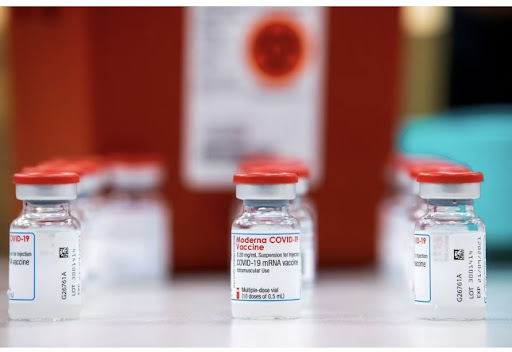Amitha George, Pune
Moderna’s latest COVID-19 vaccine has shown promising efficacy against the emerging “Eris” and “Fornax” subvariants, according to preliminary study findings released on Thursday. These subvariants have been a cause for concern due to their potential impact on the ongoing pandemic.
The “Eris” subvariant, scientifically known as EG.5.1, has gained prominence as a dominant strain, accounting for 17% of COVID-19 infections in the United States. The Centres for Disease Control and Prevention (CDC) noted a recent surge in hospitalizations associated with this variant. However, experts have offered reassurances that the hospitalization figures remain considerably lower than those witnessed during the height of the pandemic, indicating that stringent social distancing measures or mask mandates might not be immediately necessary.
Versions of the COVID-19 vaccines produced by Moderna and its competitors Novavax (NVAX.O), Pfizer (PFE.N), and German partner BioNTech SE (22UAy.DE) also targeted the XBB.1.5 subvariant. Pfizer Inc.’s modified COVID-19 vaccine demonstrated encouraging neutralising effects against the “Eris” subvariant in a study involving mice. The prospect of multiple vaccines targeting these evolving variants presents a more comprehensive strategy in the battle against the virus.
Moderna aims to expedite the availability of its modified vaccine in the upcoming fall vaccination season. The company awaits approval from health regulatory authorities in the United States, Europe, and worldwide. This could be a crucial step in bolstering global vaccination efforts, potentially curbing the spread of these subvariants and reducing the severity of infections.
While the global vaccination campaign has made significant progress, the emergence of new variants underscores the importance of ongoing vigilance. The “EG.5” variant has made its presence felt across several countries, including China, South Korea, Japan, and Canada. Classified as a “variant of interest” by the World Health Organization, it underscores the need for continued monitoring due to potential mutations that could impact transmission and severity.
As these variants continue to evolve, health authorities stress the significance of staying informed and proactive. Monitoring virus data, especially for those at higher risk, remains essential. Individuals displaying symptoms are encouraged to seek COVID testing promptly. The ongoing efforts by pharmaceutical companies and health organizations collectively represent humanity’s determination to overcome the challenges posed by the ever-adapting virus.
